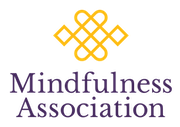There are different levels of anxiety that might be experienced in meditation practice.
Anxiety might arise in relation to a worry or concern about something happening in our life. Maybe an upcoming house move or a job interview.
It might also arise because we have a strong habit of anxiety, which we have cultivated over many years, so that we become concerned when we don’t have something to be anxious about. Worry thoughts just pop into the mind randomly, we engage them and get caught up in catastrophising thinking loops which feed our anxiety.
We might also experience existential anxiety when our meditation practice is about to generate a significant insight. Such insights can change the way we think about ourselves, what we think we are and how we think the mind works. Or they can change the way we think about the world, what it is and its true nature. We might think, if my perspective changes, who would I be? How would I live in the world? What would the consequences for my life be? I wouldn’t be who I think I am!
I remember once being on retreat when I had an insight about how mean I had been to someone. This contradicted my idea of myself as a kind person and so was very threatening. I remember being very upset and overwhelmed. Not because I had been mean to this person, but because my image of who I thought I was had been challenged. This insight threatened my sense of self.
Transformative insights are very valuable in enabling us to see and come to terms with deeply ingrained habits. They are the basis of deep personal growth which over time reduces our levels of day to day suffering (and that of those around us) and increases our overall happiness. If we can unconditionally accept these old habitual patterns they tend to transform themselves by a process which Krishnamurti called ‘The seeing is the doing’. When we see clearly and in a felt sense way how our habitual patterns cause harm, then they tend to transform themselves. But after such transformation, who would I be?
So, this kind of existential anxiety can be a significant block to our progress of meditation practice. So how do we proceed?
First, we familiarise ourselves with the components that make up anxiety, the thoughts we buy into, how anxiety feels, and any emotions that accompany the anxiety. Then we can hold these components in a wider space and see them for what they really are, habitual happenings within the mind and learn that we don’t have to buy into them and make them real.
Second, we cultivate courage. There is no courage without fear. The deeper the fear the stronger the courage. Compassionate imagery can help us here to cultivate an ally that has absolute courage and strength to support us in facing anxiety when it arises.
If this is something you are interested in exploring, then why not try our Managing Anxiety Course starting in September. You can find more information here. https://www.mindfulnessassociation.net/course/managing-anxiety-in-difficult-times/


